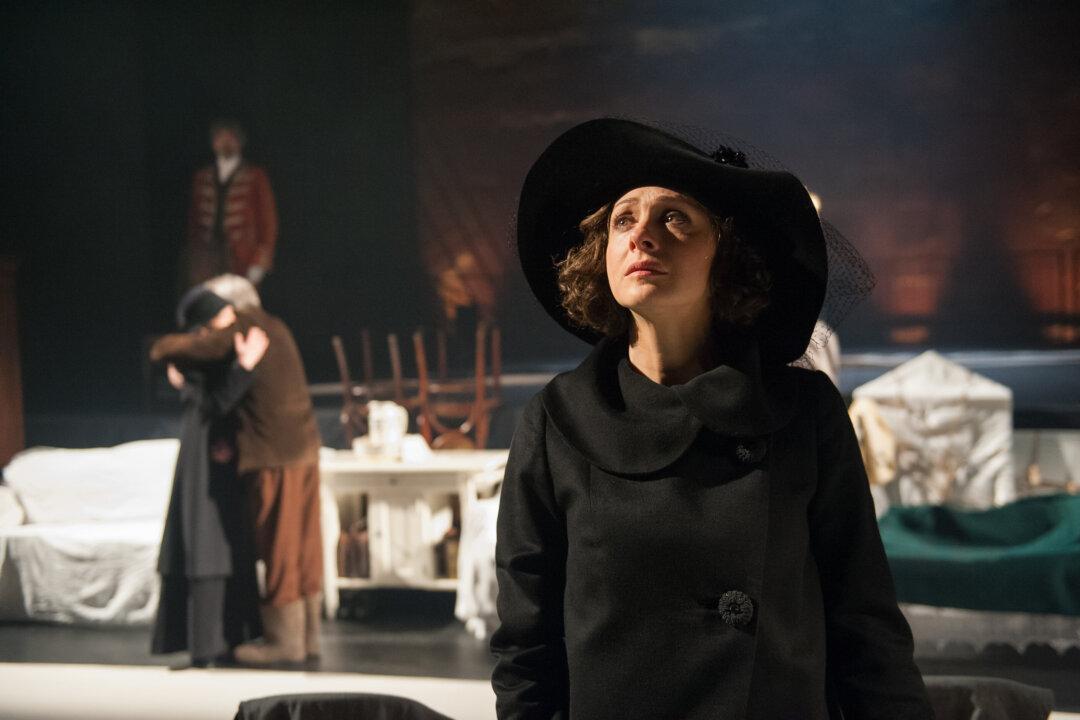BROOKLYN, N.Y.—Director Lev Dodin, artistic director of the Maly Drama Theatre of St. Petersburg, Russia, is noted for his unique, often audacious, productions. His current version of Anton Chekhov’s “The Cherry Orchard” at BAM’s Harvey Theater is an example.
Aleksander Borovky’s design echoes Dodin’s concept of minimalism: letting the play speak for itself. The set consists of a few nondescript chairs, a table, cot, and bookshelf, rather than set pieces. However, the audience seats are each covered with linen, as it appears onstage covering the furniture pieces.
The genius of Chekhov ensures that what we see passing before us is the downfall of the once ruling aristocracy of Russia.





